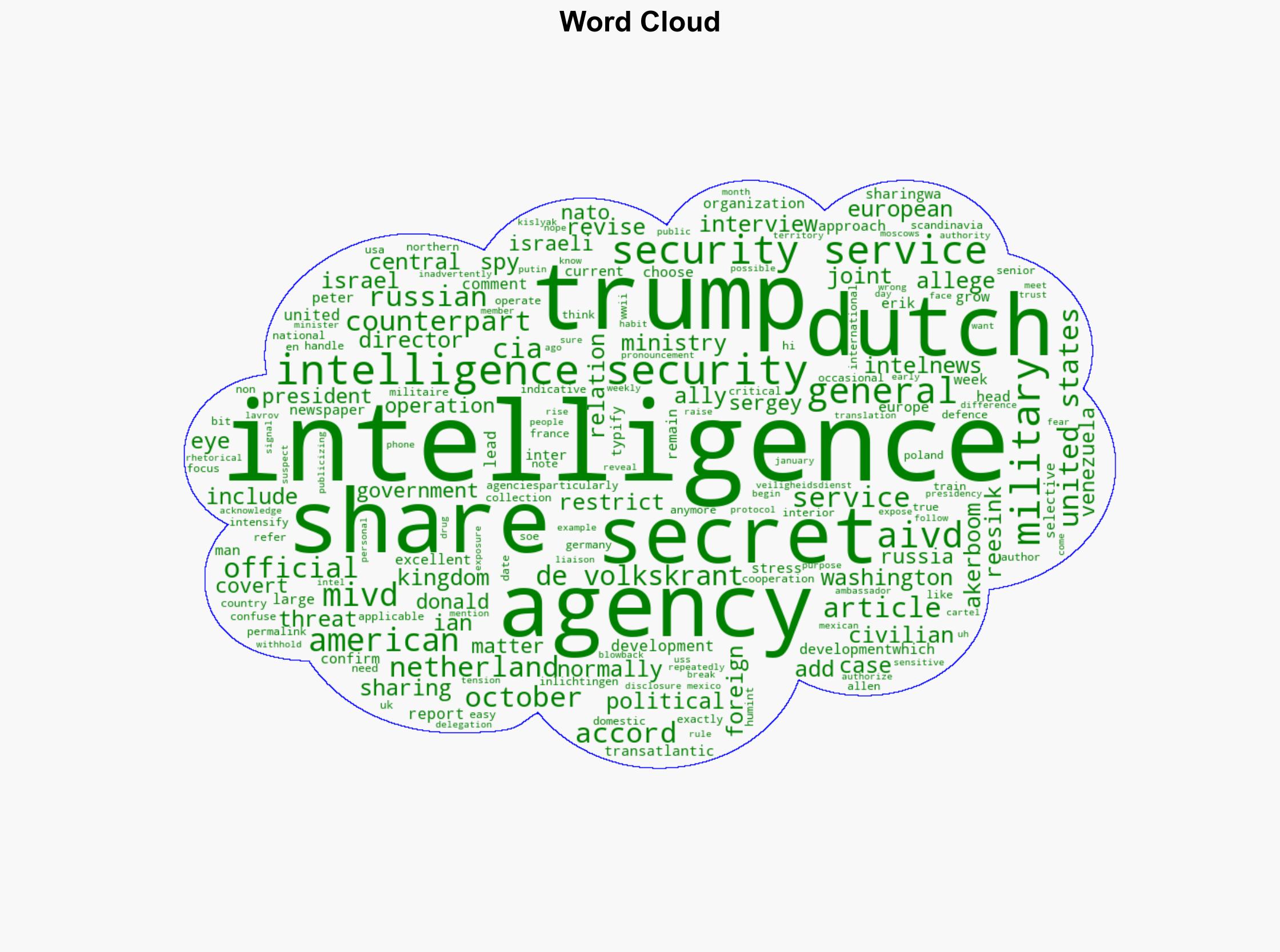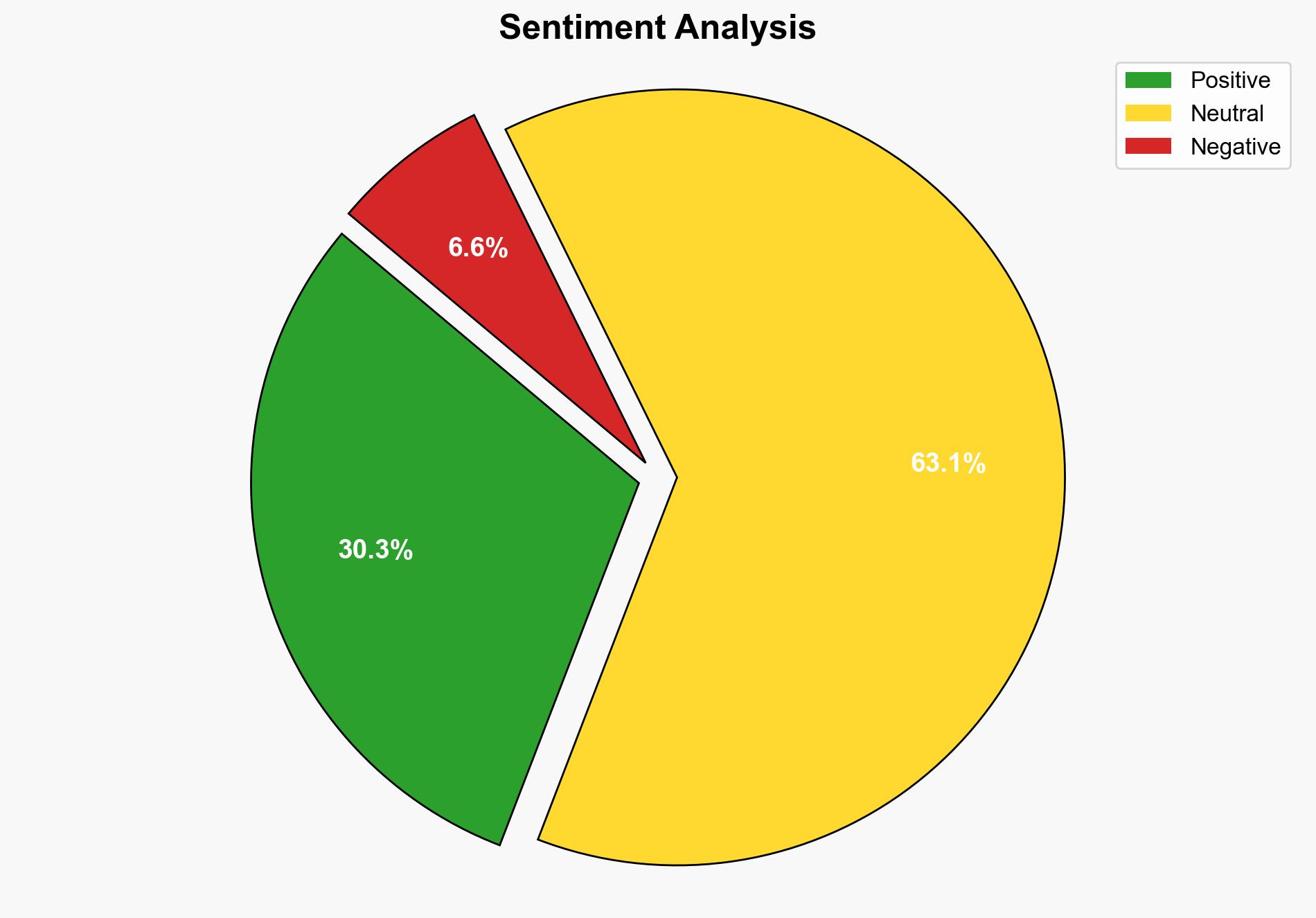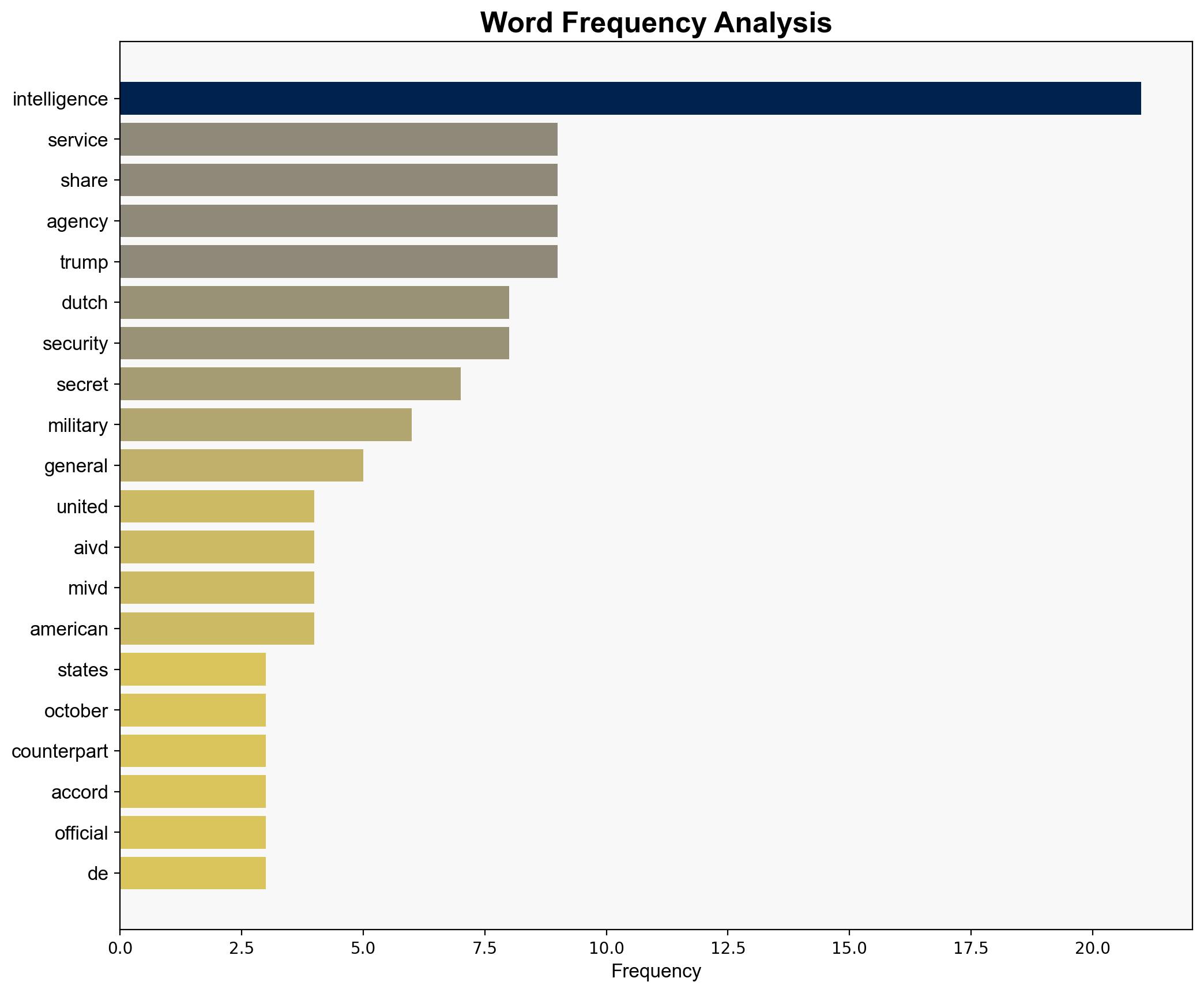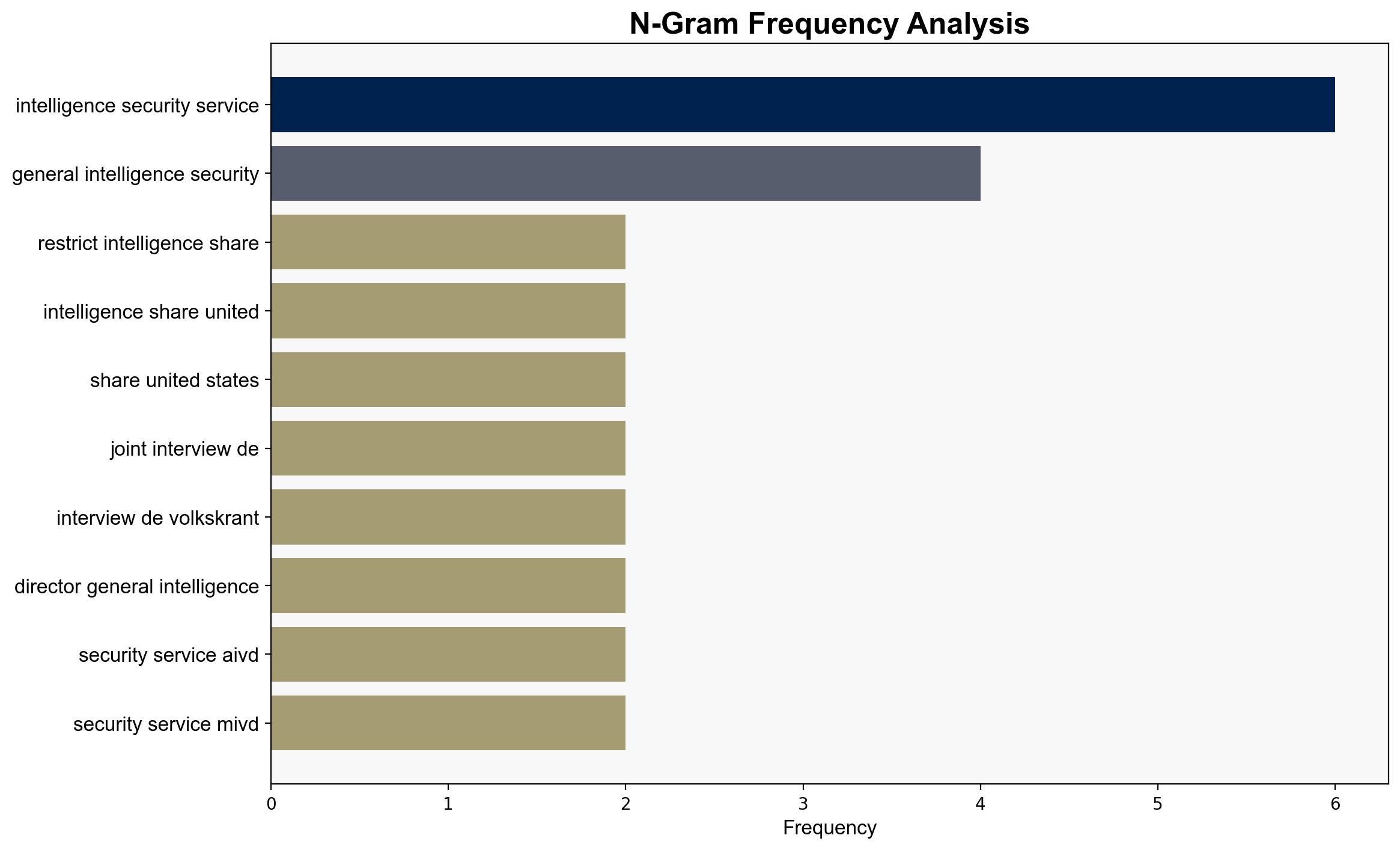Dutch spy services have restricted intelligence-sharing with the United States report – Intelnews.org
Published on: 2025-10-20
Intelligence Report: Dutch spy services have restricted intelligence-sharing with the United States report – Intelnews.org
1. BLUF (Bottom Line Up Front)
The Dutch intelligence services have become more selective in sharing intelligence with the United States, reflecting broader European skepticism towards U.S. intelligence practices. The most supported hypothesis suggests that this change is primarily driven by concerns over U.S. political stability and intelligence security. Confidence level: Moderate. Recommended action: Strengthen diplomatic engagement with European allies to address their concerns and reinforce intelligence-sharing protocols.
2. Competing Hypotheses
1. **Hypothesis 1**: The restriction in intelligence-sharing is primarily due to concerns about U.S. political stability and the potential for intelligence leaks, particularly given past incidents involving unauthorized disclosures.
2. **Hypothesis 2**: The decision is part of a strategic realignment by the Netherlands to enhance cooperation with European intelligence agencies, reflecting a broader European trend towards regional intelligence consolidation.
Using the Analysis of Competing Hypotheses (ACH) 2.0, Hypothesis 1 is better supported due to specific references to past incidents involving U.S. intelligence leaks and political developments that have undermined trust.
3. Key Assumptions and Red Flags
– **Assumptions**: It is assumed that the Dutch decision is based on rational assessments of risk and not influenced by external pressures or misinformation.
– **Red Flags**: The lack of explicit statements from the Dutch government on the exact reasons for the change suggests potential undisclosed factors. The reliance on media reports introduces the risk of bias or incomplete information.
4. Implications and Strategic Risks
– **Geopolitical**: A shift in intelligence-sharing dynamics could weaken transatlantic security cooperation and embolden adversaries who perceive a fracture in Western alliances.
– **Cybersecurity**: Reduced intelligence-sharing may impact joint efforts to combat cyber threats, increasing vulnerability to cyberattacks.
– **Psychological**: Perceptions of U.S. unreliability could lead to broader strategic realignments among European allies.
5. Recommendations and Outlook
- Engage in high-level diplomatic dialogues with Dutch and other European intelligence leaders to rebuild trust and clarify mutual concerns.
- Enhance transparency in intelligence operations to reassure allies of secure handling and sharing practices.
- Scenario Projections:
- **Best Case**: Restoration of full intelligence-sharing protocols following successful diplomatic engagement.
- **Worst Case**: Further deterioration of transatlantic intelligence relations, leading to strategic vulnerabilities.
- **Most Likely**: Gradual improvement in relations with selective intelligence-sharing agreements.
6. Key Individuals and Entities
– Erik Akerboom
– Peter Reesink
– Ian Allen
7. Thematic Tags
national security threats, cybersecurity, counter-terrorism, regional focus





